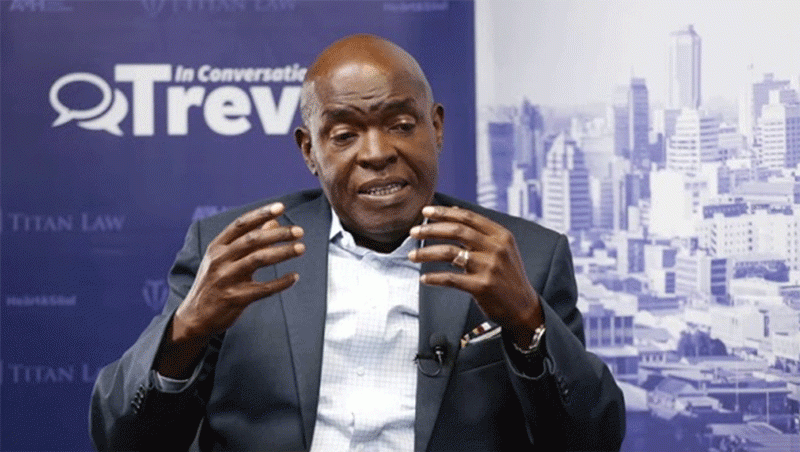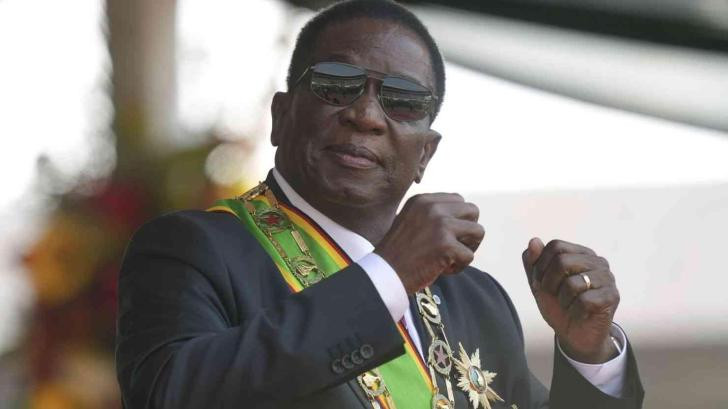
A RELENTLESS inflationary surge pushed Old Mutual to a $9 billion after tax loss during the half-year ended June 30, 2022, the firm said yesterday, noting that returns “trailed” inflation.
Write downs for the review period represented a marked drop from a $31 billion profit after tax during the comparable period in 2021.
But cuts to post tax profit tracked developments on the revenue front, which dropped to $84 billion during the review period from $111,3 billion previously.
But the Old Mutual board and management said the insurance giant was well positioned to overturn the half-year setback, riding on policy interventions rolled out to swing the economy out of choppy waters.
The domestic economy came under tremendous pressure from geopolitical tensions tearing through eastern Europe for the past five months.
The standoff, pitting Russia and Ukraine — producers of critical commodities for worldwide consumption — have sparked off rampaging overheads.
But in a note to shareholders, Old Mutual chairperson Kumbirayi Katsande showed that the ramifications of steep inflation had already exerted weight on one of Zimbabwe’s biggest financial services firms before the half year closed.
“The group achieved an inflation adjusted loss after tax of $9 billion, down from a profit after tax of $31 billion achieved in the prior period with the main driver being the resurgent inflation,” Katsande said while sharing the results with investors.
- Rampaging inflation hits Old Mutual . . . giant slips to $9 billion loss after tax
- Monetary measures spur exchange rate stability: RBZ
- Zim deploys IMF windfall to horticulture
- Banker demands $21m from land developer
Keep Reading
“The returns on our investment portfolio lagged behind inflation resulting in the reported loss. While the operating environment in the first half of 2022 remained difficult, the group sustained adequate capital, and liquidity levels in excess of regulatory thresholds. We believe that near term environment points to a flat to negative outlook against a backdrop of weak global sentiment and underlying domestic economic fragilities. This notwithstanding, we see sector specific green shoots within the environment and we maintain a positive long-term view on the outlook. It will remain critical to maintain consistency of key policies to foster predictability and stability in the economy,” the Old Mutual boss noted.
The depth of the global crisis that has been described by The Financial Times as the “most challenging in decades”, have exerted pressure on central banks to act and apply brakes on protracted downturns.
From the US to Europe central banks have been hiking rates to contain inflation.
But the tassel cool off jitters has been harder in troubled Zimbabwe, which was already in the grip of slowdowns when pandemic lockdowns were rolled out in 2020.
These were compounded by the big conflict that rattled world economies in February.
Old Mutual’s half year had passed when the Reserve Bank of Zimbabwe hiked rates by 120 percentage points to 200% in July.
Chief executive officer Samuel Matsekete said: “The losses reported are largely attributable to lower investment returns on invested assets as the growth on the capital markets was trailing inflation. However, results from operations, which reflect the core operating performance of the group were up 73% to $13,7 billion on the back of growth in revenues across all business lines with key drivers being banking net interest income and non-interest revenue, premium income as well as asset-based charges. Authorities have been implementing several measures aimed at promoting economic stability.
“If sustained, such measures would improve the use of formal channels for financial transactions and ultimately support a culture of savings. The case to promote both short and long-term savings is a very strong one for the sustainable development of any economy.”
- Follow us on Twitter @NewsDayZimbabwe






